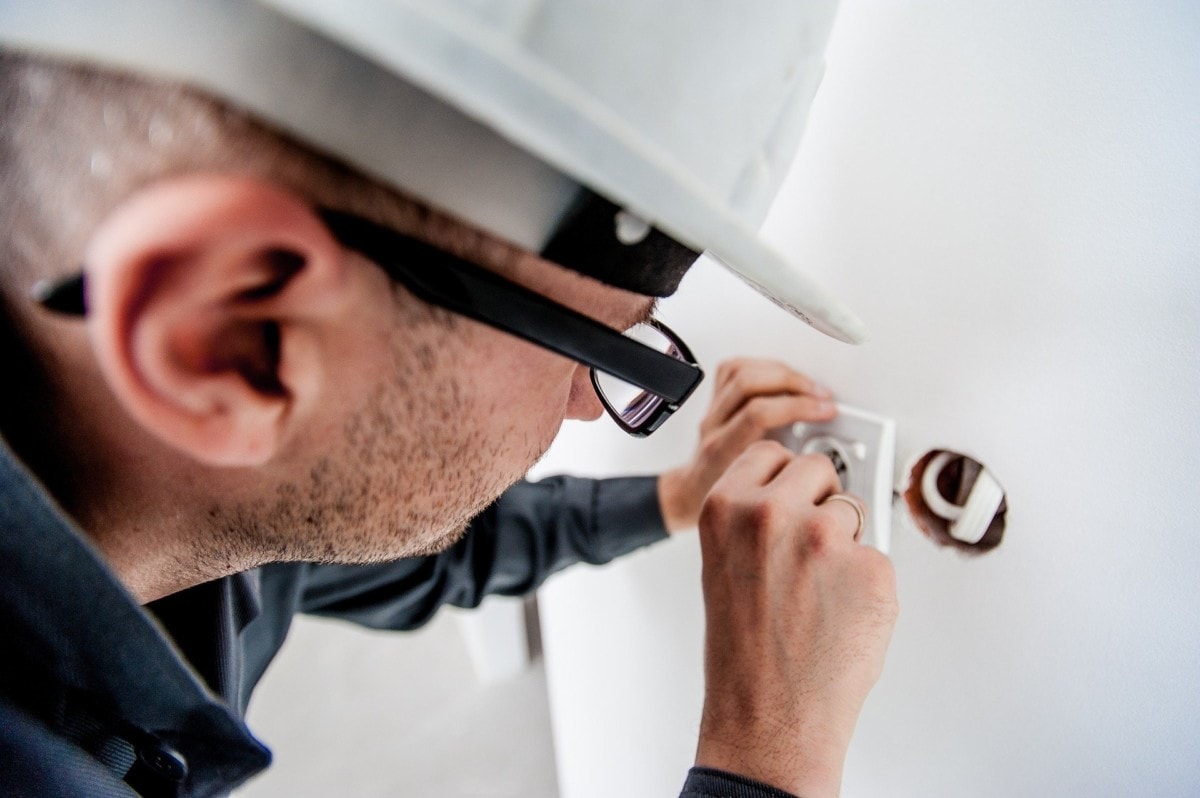Closing on a home is exciting, but sometimes you encounter “inspection nightmares” that can break the deal. As a seller, inspection surprises can force you to spend thousands of unexpected dollars to get your house ready to sell. As a buyer, these surprises may preclude you from signing off on the home of your dreams. To help you know what to look out for during your next home inspection, here are some commonly encountered home inspection nightmares, as well as some advice on how to handle them:

1. Foundation issues
If a home inspector finds a problem with the home’s foundation — or if the grading is sloped the wrong way — it will present a hassle for the seller and the buyer alike. Damp or wet crawlspaces may result from water seeping toward the foundation, or windows and doors may show uneven gaps — a sure sign that grading issues are causing the foundation to fall out of alignment. Sloping floors and cracked concrete are additional indications that a home’s foundation is in need of repair. Since the foundation is responsible for supporting the entire home, fixing it will cost a pretty penny; buyers may shy away from a home with foundation issues.
Expert advice:
Issues with a home’s foundation may occur in any age and location. Older homes are typically more prone to movement and damage due to older building practices which lack adequate support as well as seismic support. Cracks are also common and could be an indication of a problem. Some concerning cracks are those that are over 1/4″ wide, cracks that run horizontal, and stair-stepped cracks. Hydraulic cement and sealants are available from most hardware stores to seal cracks to prevent water intrusion. – Ground Up Inspection
Some foundation issues can be minor while others can be very significant. So it’s important to have experienced experts perform foundation repairs, such as licensed foundation professionals, rather than a handyman. In some cases, the foundation needs to be reviewed by a structural engineer to specify the needed repairs. Foundation repairs are not the time to let a seller bring in unqualified contractors to perform these repairs. It’s important to understand the scope of the work needed, which may require the buyer hiring a structural engineer. – Daley Home Inspections
2. Water problems
Water issues in many forms can be another home inspection nightmare. Standing water in the basement could mean there is a major issue in the plumbing to address. Water stains on the ceiling could be indicative of roof damage or pipe issues. Bills for broken or cracked water lines will add up, plus, you may have to deal with the local municipality on some water issues. Water problems can be expensive to fix, but plumbing to the main water line generally falls to the seller’s responsibility.
Expert advice:
Make sure ALL plumbing is checked for proper function. In most cases, this is missed. Make certain that the hot and cold side both work simultaneously, as they should. Once you purchased the property, it becomes your responsibility to repair. It’s the little things that can add up. – Total Property Management
When a home inspector uncovers evidence of water damage the question is whether it’s a water supply leak (under pressure) or a drain pipe leak (not under pressure). The first step is to have the leak reviewed by a licensed plumber. They’ll have specialized equipment that can determine whether the leak is under pressure or not. Once this is confirmed, the plumber can determine the best path forward for suitable repairs. – Careful Home Inspections
3. Pests
When looking through your home for any pests — bugs, small rodents, etc. — the biggest issue to keep an eye out for is termite damage. Termites can eat the house from top to bottom, especially if you have wood framing. You must get rid of them and replace any wood they’ve eaten to keep the structural integrity of the house. You’ll need to monitor the house for a short time to make sure they don’t reappear.
Expert advice:
Rodent and squirrel activity in an attic can cause damage to the attic insulation or electrical wiring. Rodent droppings and urine can be unsanitary, while chewed electrical wires can become a fire hazard. Pest companies or critter control contractors can correct this condition by sealing off rodent entry opportunities on the exterior roof and walls. Trimming tree limbs overhanging the roof or possibly removing a tree can help fix the problem as well. – Atlanta Property Inspections

4. Faulty electrical wires
House fires are often caused by faulty electrical wiring. If an inspector finds this problem during a home inspection, there’s a chance someone will have to spend hundreds to thousands of dollars to rewire the home. Home inspectors are not allowed to open up walls and ceilings, so problems like these often go unnoticed. Inspectors will check electrical panels. If they’re not up to code, are missing labels, or aren’t up to capacity, you will have to address the issues. Exposed, spliced, or taped wires need to be fixed before walkthroughs. You’ll need to hire an electrician to further inspect your electrical wires and help fix this home inspection nightmare.
5. Mold and rot
Mold isn’t always a problem, but it can easily become a home inspection nightmare if gone unnoticed. Home inspectors may find black mold, for example, in a basement or crawl space. Mold can be a major health hazard, especially black mold, and may lead to asthma or other serious health issues. Mold usually indicates larger problems in the home, such as cracks in the foundation or plumbing issues that need to be addressed quickly.
Rotting in framing or around wood decks, windows, or doors is also usually indicative of larger problems. This could be the result of leaking pipes, mildew, or any kind of moisture issue that causes wood to break down. You need to find the problem and address it before more problems arise.

6. Roofing problems
Roofing problems aren’t always cause for alarm, but when a home inspector sees structural damage, mold, or flashing damage, the roof is generally in serious need of repair. Sometimes, buyers can negotiate with the seller to cover this repair cost. Other times, you might have to take on the repairs yourself after closing on the home. It varies from housing market to housing market, so discuss your options with your realtor before determining whether you want to close on the home or choose another.
Expert advice:
There are many warning signs to look out for that the seller or inspector could miss. One of the most obvious is curled shingles near the bottom edge of the roofline. As the sun takes its toll on shingles, they can become brittle. If you see a curled shingle–or granules in your gutters or on the ground–then you can rest assured that the roof needs to be replaced as soon as possible. Other signs to look for are dents in the gutter system and on top of roof jacks. This indicates that a hail event took place at some time in the past. Hail hits on a roof can cause shingles to lose their seal and granules to dislodge from the shingle surface, allowing water to penetrate. – Lee Brothers Construction
7. Asbestos and radon
Many home inspectors are now offering radon testing as an add-on service and asbestos testing if they feel there’s a need. A positive asbestos or radon test is a sure sign that your home has a significant indoor air pollution problem and has been exposed to asbestos or radon. If this is the case, it needs to be addressed immediately. While you can address some remediation yourself — i.e., you can buy and set up a radon kit — it’s by no means as effective as hiring a professional. Asbestos removal, in particular, can be dangerous. Always hire a professional when removing and remediating indoor air pollution sources.
8. Septic Issues
It could show up as gurgling as water goes down the drain or wet, smelly areas in the yard, but if you’re told your septic drain field needs repair, you may be looking at heavy equipment digging up your yard and thousands of dollars of expense.
Expert Advice:
If septic issues are detected, contact a qualified service provider immediately. A complex set of mechanisms work together in unison to manage wastewater in a safe, effective way. A septic professional will be able to accurately diagnose the problem, which could range from a small issue like the filter being stopped up to a large concern like the need to replace the entire drain field. If you’re told your drain lines must be replaced, ask if Terralift is an option. Terralift is an alternative to a complete septic drain field replacement and it requires no digging or heavy equipment. Air is forced into the soil, creating fissures and polystyrene beads hold the space open. This allows the liquid to pass through into the space that’s been created. The process costs thousands less than replacing the drain field or connecting to the sewer. Results are immediate. There’s no damage to your yard–and it’s effective for years. Not all septic companies offer Terralift service. If you’re facing a drain field replacement, find a septic provider that offers Terralift and see if this less invasive, less expensive option will solve your issues. – Jeanie Lentz, Co-owner of Lentz Wastewater Management Inc.
Additional expert advice on home inspection nightmares
Here are a few things that David Sherwood, founder of Sherwood Inspection Services, has learned from client reactions over the years. These issues can be easily resolved prior to the inspection to prevent inspection nightmares from occurring:
Underground Oil Tanks: Most underground tanks have been removed. If yours has not, I strongly recommend having it removed for $1,000 to $3,000. if not, almost all closing attorneys will strongly advise the client to negotiate it and hold the deal up. If the pipes are present from an old tank get them removed so it takes the guesswork out of the picture.
AC Condenser or heat pump and boiler: Have these serviced and a report on them. The average age for this component is 18 years. Anything older than that is on borrowed time so if you have it maintained and inspected by the HVAC contractor and put the report in the disclosure it too will prevent making a smaller issue a big issue.



























 United States
United States Canada
Canada